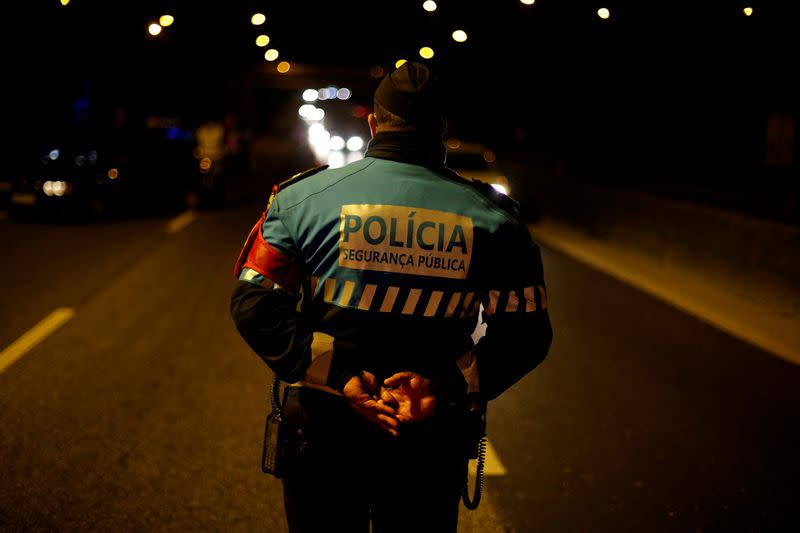Portuguese police to sue over cartoon denouncing systemic racism

LISBON (Reuters) - Portuguese police said on Monday they were taking legal action against the authors and broadcaster of an animated cartoon shown last week by public television channel RTP that denounced alleged systemic racism in security forces.
The cartoon shows a white police officer shooting at targets that represent people with different skin tones. The darker the target, the more rounds the officer fires and the angrier he looks.
In a statement, the PSP police said the cartoon was offensive, spread "untrue facts" and hurt the force's credibility and "prestige".
The PSP sent evidence to the public prosecutors, media regulator ERC and the journalists' professional licence committee, CCPJ, as part of a criminal complaint against the cartoon's authors and RTP.
Spam Cartoon studio said their creation had nothing to do with the PSP, but with the recent killing in France of Nahel M., a 17-year-old of Algerian and Moroccan descent, who was shot dead by a police officer.
It also said it has been receiving threats due to the cartoon.
National and international organisations have previously expressed concerns about police violence in Portugal.
In April this year, the U.N. Committee on the Elimination of Racial Discrimination said it was concerned about information that indicated the "excessive use of force by police officials continued" in the southern European nation and that it was a "deep-rooted practice against people of African descent".
Interior Minister Jose Luís Carneiro, who oversees security forces, spoke to RTP to "express displeasure" over the cartoon, but Culture Minister Pedro Adao e Silva said artists should have editorial freedom.
Cited by Portugal's Lusa news agency, RTP said the cartoon had no intention of instigating violence against officers, as some critics had suggested, and that the "values of freedom of expression and opinion were fundamental".
(Reporting by Catarina Demony; Editing by Andrei Khalip and Nick Macfie)

 Yahoo News
Yahoo News 
